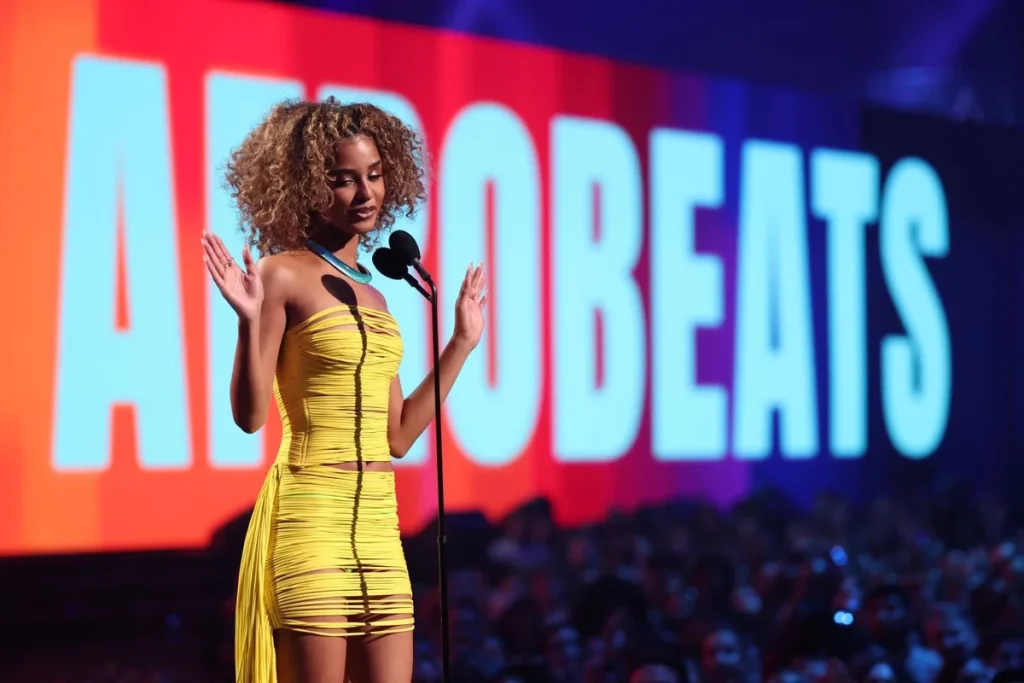AfrikanTrust
The African music scene is no longer knocking at the door of the global stage—it’s kicked it wide open. In 2024, Spotify, the world’s leading audio streaming platform, disbursed approximately $59 million in royalties to artists from Nigeria and South Africa, marking a historic payout to performers from the continent’s two largest music markets.
This massive leap comes as African sounds continue to captivate global audiences, with genre-blurring hits from the likes of Burna Boy, Nigeria’s global Afrofusion juggernaut, and Tyla, South Africa’s genre-bending pop and amapiano sensation. These two artists exemplify the new wave of African excellence that’s transforming streaming into a profitable, sustainable income stream for local musicians.
A Billion-Dollar Pie—and Africa’s Growing Slice
Spotify paid out $10 billion globally in royalties last year. While African artists accounted for a small percentage of this sum, their share is growing fast—and louder. The streaming platform reported that over 250 million user-generated playlists feature at least one Nigerian artist, while 220 million playlists include a South African act. The implication? Africa is not just exporting talent; it is exporting culture, sound, and a whole vibe.
Spotify’s Managing Director for Sub-Saharan Africa, Jocelyne Muhutu-Remy, called the growth “an excellent evolution,” particularly for mid-tier and emerging artists who are increasingly able to make a living off streaming alone—something that was a dream just five years ago.
The Numbers Behind the Boom
In raw figures, Nigerian artists earned over 58 billion naira (approx. €40 million) in Spotify royalties in 2024, more than double the 2023 payout. Meanwhile, South African performers earned 400 million rand (approx. €20 million)—a 54% increase year-on-year.
But the most telling stat is this: a majority of that income didn’t come from within Africa. Spotify reported that Nigerian artists have seen a 49% increase in music export growth over the last three years, while South Africa’s export growth hit a jaw-dropping 104%.
In South Africa, the number of artists earning between 100,000 and 500,000 rand (€5,000 to €25,000) has doubled since 2021. In Nigeria, the number of artists earning 10 million naira (€6,400) or more in royalties doubled in a single year—and tripled since 2022.
These figures underscore a shift that goes far beyond popularity. It’s about viability. African artists are not only streaming millions of plays—they’re finally getting paid for it.
Tyla and Burna: Icons of the New African Pop Power
You can’t talk about this streaming surge without spotlighting the poster children of Africa’s global music wave: Tyla and Burna Boy.
At just 22, Tyla, hailing from Johannesburg, has taken the world by storm with her Grammy-winning hit Water—a sultry blend of amapiano rhythms, pop hooks, and R&B sensuality. She became the first South African artist to crack the US Billboard Hot 100 in over 50 years. Her rise marks a coming-of-age moment not only for her but also for the South African music scene, which has long been bubbling under global radar with genres like kwaito, house, and more recently, amapiano.

Burna Boy, meanwhile, needs little introduction. The self-proclaimed “African Giant” has headlined Coachella, sold out Madison Square Garden, and won a Grammy. With his fusion of Afrobeats, dancehall, reggae, rap, and traditional Nigerian rhythms, Burna has carved out a lane that is uniquely African yet universally appealing.
Together, they represent a movement: African artists are no longer “emerging”—they are established global players reshaping the soundscape of popular music.
Why It Matters: A New Model for African Music
The surge in royalties is more than a payout; it’s a paradigm shift. For decades, African artists struggled with piracy, lack of infrastructure, and gatekeeping in traditional record labels. Streaming platforms like Spotify have flattened the playing field, allowing direct access to global audiences.
But streaming is not just about exposure—it’s about ownership. Artists now have data insights, revenue breakdowns, and algorithmic reach—all of which empower them to strategize, monetize, and grow independently.
Moreover, Spotify’s local team in Africa is now working actively with artists, producers, and managers to enhance monetization, optimize release strategies, and build international collaborations. This kind of grassroots infrastructure support is what turns momentary fame into long-term careers.
The Bigger Picture: Soft Power, Culture, and Influence
Africa’s music exports are doing more than topping charts—they’re exporting identity. From language and fashion to slang and dance, African music has become one of the continent’s most potent forms of soft power. It is telling African stories, reclaiming African narratives, and influencing global youth culture in unprecedented ways.
With platforms like TikTok amplifying African tracks to viral status, and Western artists now queuing up for features with African stars, the tables have turned. African sounds are no longer being “discovered” by the West—they’re being followed.
What’s Next?
As the streaming ecosystem matures, the focus must now turn to diversification and equity. Are artists being paid fairly across platforms? How can local ecosystems—studios, publishers, promoters—keep pace with the digital boom? What’s the role of governments in supporting this growing industry with better copyright laws and financial support?
The boom in royalties is a good start, but the long-term health of Africa’s music economy will depend on strategic investment, policy alignment, and most importantly, keeping the music authentic.


